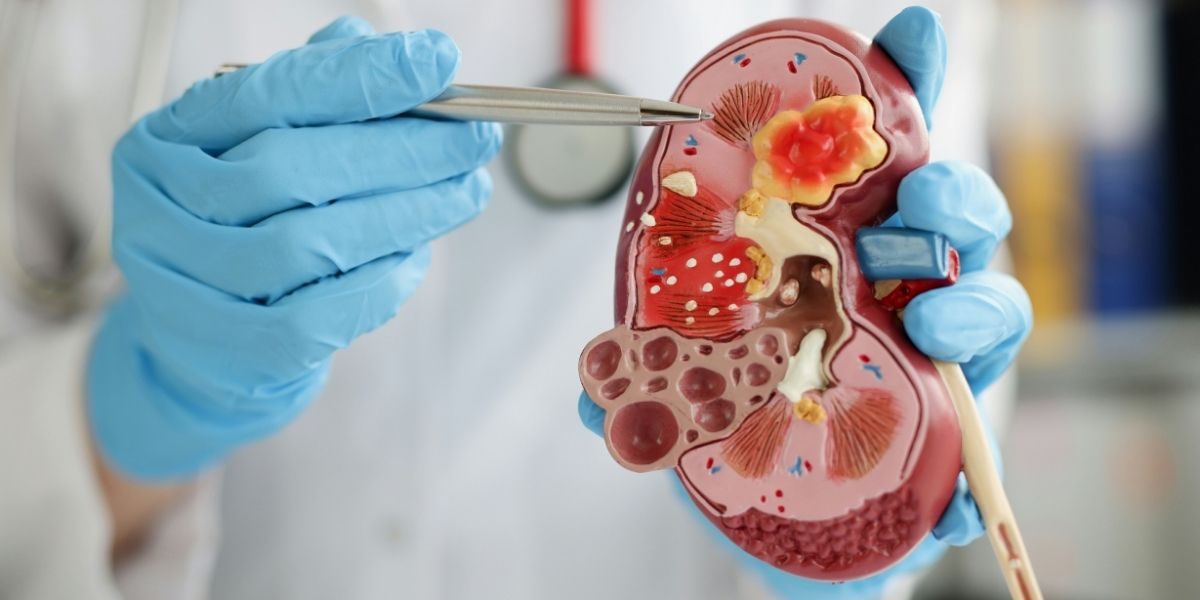What Is Kidney Care and Why Is It Important?
The kidneys are vital organs that filter waste and excess fluids from the blood, helping maintain a healthy balance of minerals and electrolytes. Proper kidney function supports blood pressure regulation, red blood cell production, and overall fluid balance. When kidney function declines, toxins build up, leading to serious health problems. Understanding how to maintain optimal kidney function is essential for lifelong wellness.
Preventing kidney issues starts with healthy habits. Staying hydrated helps kidneys flush waste efficiently. Drinking adequate water throughout the day supports this vital process. Eating a balanced diet low in sodium and processed foods reduces the burden on the kidneys. High salt intake can increase blood pressure, putting extra stress on these organs. Regular physical activity promotes a healthy weight and reduces risk factors like diabetes and hypertension, both leading causes of kidney disease. Avoiding smoking and limiting alcohol consumption protect kidney tissue from damage.
Controlling blood sugar levels is crucial for people with diabetes, as high glucose can injure delicate kidney filters. Routine medical checkups can detect early signs of kidney stress, allowing timely interventions to prevent progression.
Read Also: Hydration Goals: How to Stay Refreshed All Day
What Are the Warning Signs of Kidney Problems?
Early kidney issues often present subtly, making awareness important. Symptoms can include fatigue, swelling in the hands or feet, and changes in urine appearance or frequency. Some may notice foamy urine, indicating excess protein loss. Persistent itching, muscle cramps, or difficulty concentrating can also suggest reduced kidney function. High blood pressure resistant to medication might be a sign that kidneys are struggling to regulate fluid balance. Because early symptoms are vague, regular screening for individuals at risk—such as those with diabetes, hypertension, or a family history of kidney disease—is advised. Early detection allows for lifestyle changes and treatment to slow or halt damage.
How Is Kidney Function Managed When Problems Arise?
Once kidney issues are identified, management focuses on protecting remaining function and addressing underlying causes. Doctors often recommend dietary changes such as reducing salt, protein, and phosphorus intake to ease kidney workload. Maintaining proper hydration remains important but may require adjustments based on kidney capacity. Medications may be prescribed to control blood pressure, blood sugar, or treat specific conditions affecting the kidneys. Avoiding certain over-the-counter pain relievers known to harm kidney tissue is advised.
Regular monitoring helps track kidney function and adjust treatment plans. In some cases, specialized care from a nephrologist ensures comprehensive management. Lifestyle modifications like quitting smoking, exercising moderately, and managing stress also support kidney health. Patients benefit from education on symptoms that require immediate medical attention to prevent further decline.
What Daily Practices Support Lifelong Kidney Health?
Simple daily habits can protect kidney function over time. Drinking sufficient water helps kidneys filter toxins effectively. Choosing fresh fruits and vegetables, whole grains, and lean proteins supports overall health without overloading the kidneys.
Limiting processed foods high in salt and additives reduces kidney strain. Preparing meals with herbs and spices instead of salt helps maintain flavor while protecting organ function. Regular exercise aids circulation and weight management, reducing risks associated with kidney disease. Avoiding smoking and excessive alcohol consumption protects delicate kidney tissues.
Being mindful about medication use, including supplements, prevents accidental kidney damage. Always consulting healthcare providers before starting new treatments is essential. Awareness of infection risks and vaccination, especially for hepatitis and flu, can prevent illnesses that may affect kidney function.
How Does Kidney Health Influence Overall Well-being?
Kidney function impacts multiple systems. Healthy kidneys regulate blood pressure and support red blood cell production by releasing erythropoietin. Poor kidney function can lead to anemia, fatigue, and increased risk of heart disease.
Toxin buildup from impaired filtration affects mental clarity and immune response. Maintaining kidney function contributes to sustained energy and resilience against illnesses. Experts highlight that protecting kidneys helps reduce complications such as fluid retention, bone disease, and cardiovascular problems, which are common in chronic kidney conditions.
Ignoring kidney care risks progression to chronic kidney disease (CKD), which can lead to kidney failure. This may require dialysis or transplant to sustain life. Advanced kidney disease also increases vulnerability to infections and cardiovascular events. Unmanaged high blood pressure and diabetes accelerate kidney damage, making early intervention critical. Preventive care and regular monitoring can slow disease progression and improve outcomes. Healthcare professionals stress that adopting healthy lifestyle habits and following medical advice are the most effective ways to preserve kidney function throughout life.
Read Also: Cardiologist: Heart Health & When to See One
How Is Research Improving Kidney Care?
Ongoing studies have led to improved medications that better control blood sugar and blood pressure, slowing kidney damage. Advances in early detection techniques help identify risk sooner, allowing for prompt care. Research into genetics and environmental factors enhances understanding of individual risk profiles.
New therapies aim to repair damaged kidney tissue and delay disease progression. Public health campaigns promote awareness about kidney care, emphasizing lifestyle changes and routine health screenings.








